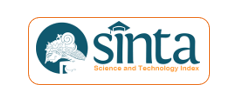EVALUATING THE LEVEL OF TEACHER PERFOMANCE: PEDAGOGIC, SOCIAL AND PERSONAL COMPETENCY
Abstract
This study aims to evaluate the level of competency of history teachers in Jember. Competency indicators are pedagogical competence, social competence and personality competence based on the perspective of students. This research used quantitative analyzed using inference statistics to analyze differences in teacher competence according to gender and teaching experience. The research sample involved 100 students across five schools. Data analysis used SPSS with multivariate statistical tests. This study indicates a significant difference between teacher pedagogical competence based on gender and teacher social competence based on the level of teaching experience. This study reflects that competency development is still needed to improve teacher competence to improve learning quality.
Keywords
Full Text:
PDFReferences
Arnold, K. H., & Lindner-Müller, C. (2012). Assessment and development of social competence: introduction to the special issue. Journal for educational research online, 4(1), 7-19.
Bhattacherjee, A. (2012). Social Science Research: Principles, Methods, and Practices. Florida: University of South Florida.
Blašková, M et al (2014). Key Personality Competences of University Teacher: Comparison of Requirements Defined by Teachers and/Versus Defined by Students. Procedia - Social and Behavioral Sciences, 114, 466–475.
Cohen, J. & Cohen, P. 1983. Applied multiple regression/correlation analysis for the behavioral sciences (2nd edn). New York: Erlbaum.
Cohen, L., Manion, L., & Morrison, K. (2007). Research Methods in Education. Canada: Routledge.
Creswell, J. W. (2009). Research design: Qualitative, quantitative, and mixed methods approaches. Los Angeles: SAGE Publication Inc.
Denham, S. A et al. 2003. Preschool emotional competence: pathway to social competence? Child Development, 74(1), 238–256.
Dumitriu, C et al 2013. Managing the Developing Didactic Career of Beginning Teachers. Procedia - Social and Behavioral Sciences, 93, 426–431.
Eppley, K. (2009). Rural schools and the highly qualified teacher provision of No Child Left Behind: A critical policy analysis. Journal of Research in Rural Education (Online), 24(4), 1.
Griffee, D. T. (2012). An Introduction to Second Language Research Methods; Design and Data. California: TESL-EJ Publications.
Hakim, A. (2015). Contribution of Competence Teacher (Pedagogical, Personality, Professional Competence and Social) On the Performance of Learning. The International Journal Of Engineering And Science, 4(2), 1–12.
Hidayah, B., Na’im, M., & Puji, R. P. N. (2020). Technological content knowledge of history teachers in Jember. In IOP Conference Series: Earth and Environmental Science (Vol. 485, No. 1, p. 012132). IOP Publishing.
Kirschner, P., & Davis, N. (2003). Pedagogic benchmarks for information and communications technology in teacher education. Technology, Pedagogy and Education, 12(1), 125–147.
Kunter, M., Klusmann, U., Baumert, J., Richter, D., Voss, T., & Hachfeld, A. (2013). Professional competence of teachers: Effects on instructional quality and student development. Journal of educational psychology, 105(3), 805.
Liakopoulou, M. (2011). The Professional Competence of Teachers: Which qualities, attitudes, skills and knowledge contribute to a teacher’s effectiveness. International Journal of Humanities and Social Science, 1(21), 66-78.
Mâţă, L., and Suciu, A.I (2011). Curricular innovative model focused on developing pedagogical competences of teachers of Language and communication. Procedia - Social and Behavioral Sciences, 12, 274–282.
Mâţă, L., Cmeciu, D., & Ghiaţău, R. M. (2013). A reference framework of pedagogical competences of language teachers in the initial training programmes. Procedia-Social and Behavioral Sciences, 93, 648-653.
Mihaela, P. L. (2015). Dimensions of Teaching Staff Professional Competences. Procedia - Social and Behavioral Sciences, 180, 924–929.
Murillo, F. Javier. (2006). Modelos Innovadores en la Formacion Inicial Docente. Oficina Regional de Educacion de la UNESCO para America Latina y el Caribe, OREALC/ UNESCO Santiago.
Nellitawati, N. (2017). The contribution of headmaster’s personality competence to the teacher’s social competence of vocational high school. COUNS-EDU: The International Journal of Counseling and Education, 2(1), 25
Pallant, J. (2010). SPSS Survival Manual. New York: McGraw-Hill.
Pérez, K.V.P & Torelló, O.M. (2012). The digital competence as a cross-cutting axis of higher education teachers’ pedagogical competences in the european higher education area. Procedia - Social and Behavioral Sciences, 46, 1112–1116.
Prasertcharoensuk, T et al. (2015). Influence of Teacher Competency Factors and Students’ Life Skills on Learning Achievement. Procedia - Social and Behavioral Sciences, 186, 566–572.
Puji, RPN et al. (2020). The Students’ Prior Knowledge at The Department of History Education within Tertiary Education IOP Conf Series: Earth And Environmental Science 485 012041doi:10.1088/1755-1315/485/1/ 012041
Romera, E. M., Rabanillo, J. L. F., Ortiz, O. G., Ruiz, R. O., & Bolaños, J. A. C. (2017). Construct, measurement and assessment of social competence in early adolescence. International Journal of Psychology and Psychological Therapy, 17(3), 337-348.
Shnyrenkov, E., & Romanova, E. (2015). The Development of Social Competence in the Educational Training Program Specialists in Urban Construction. Procedia Engineering, 117, 331–336.
Singh, K. (2007). QUANTITATIVE SOCIAL RESEARCH METHODS. New Delhi: Sage Publications India Pvt Ltd.
SUCIU, Andreia Irina and MÂŢĂ, L. (2011). Pedagogical Competences -- The Key to Efficient Education. International Online Journal of Educational Sciences, 3(2), 411–423.
Tang, S. Y. F., & Choi, P. L. (2004). The development of personal, intercultural and professional competence in international field experience in initial teacher education. Asia Pacific Education Review, 5(1), 50–63.
Uba, I., Hassan et al. (2012). Redefining Social Competence and its Relationship With Authoritarian Parenting. Procedia - Social and Behavioral Sciences, 46, 1876–1880.
Uerz, D et al. (2018). Teacher educators' competences in fostering student teachers’ proficiency in teaching and learning with technology: An overview of relevant research literature. Teaching and Teacher Education, 70, 12-23.
Wentzel, K. R. (1991). Social Competence at School: Relation Between Social Responsibility and Academic Achievement. Review of Educational Research, 61(1), 1–24.
Yermentaeyeva, A. (2014). Social Intelligence as a Condition for the Development of Communicative Competence of the Future Teachers. Procedia - Social and Behavioral Sciences, 116, 4758–4763.
Zlatić, L. (2014). Development of Teacher Communication Competence. Procedia - Social and Behavioral Sciences, 116, 606–610
DOI: http://dx.doi.org/10.17977/um0330v4i1p86-97
Refbacks
- There are currently no refbacks.

This work is licensed under a Creative Commons Attribution-ShareAlike 4.0 International License.
Editorial office:
History Department, Faculty of Social Science,
Universitas Negeri Malang
Jl. Semarang No.5 Kota Malang 65145,
Phone. (0341) 551312,
email: jpsi@um.ac.id
Website: http://journal2.um.ac.id/index.php/sejarah/index
E-ISSN 2622-1837

This work is licensed under a CC BY SA 4.0.








